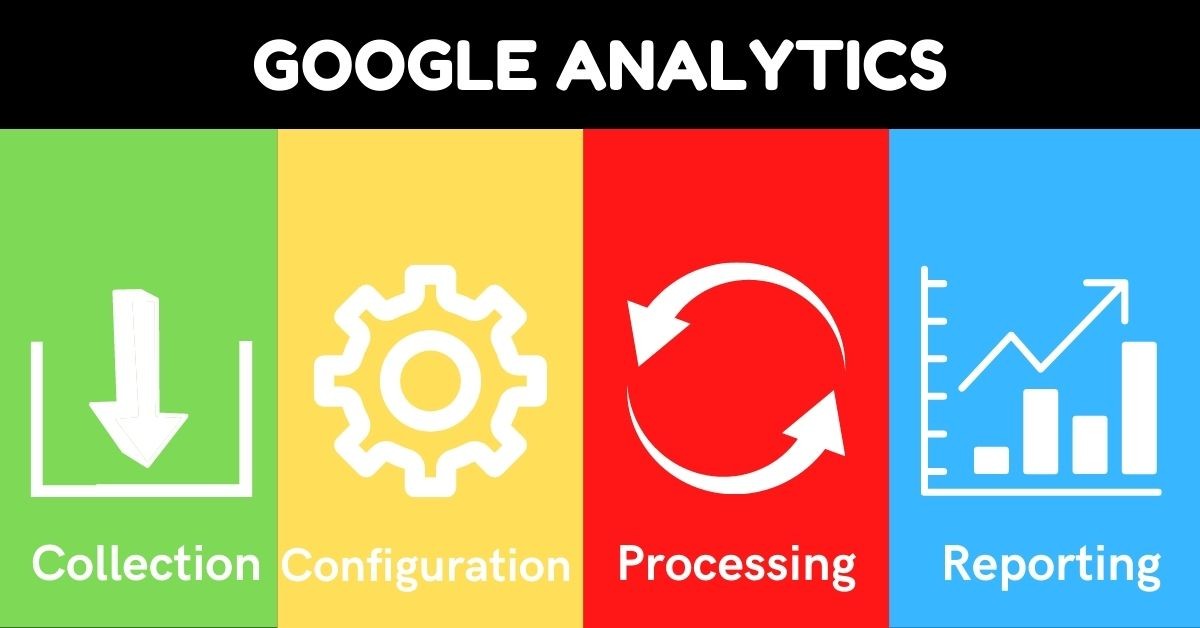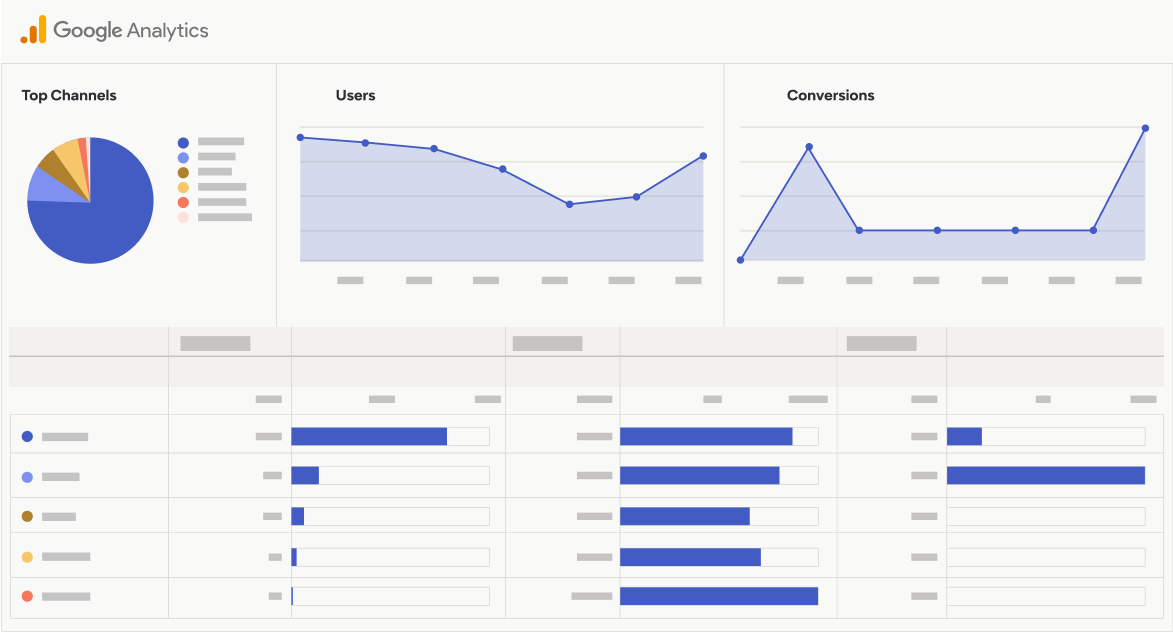Enhance Your Search Engine Optimization Strategy With Effective Google Analytics Tracking Code
Integrating Google Analytics tracking code right into your Search engine optimization strategy is a critical step toward achieving measurable results. What particular strategies can you take on to make the most of the effect of this data on your SEO initiatives?

Comprehending Google Analytics Basics
To properly take advantage of Google Analytics for SEO, it is necessary to realize its foundational principles. Google Analytics works as a powerful tool for monitoring and examining website web traffic, offering understandings that are crucial for maximizing online search engine performance. At its core, the platform enables customers to keep track of customer behavior, web traffic resources, and essential efficiency indicators (KPIs) such as bounce prices and session periods.
Knowledge with the user interface is crucial. The Target market section offers market understandings, helping to customize content to target customers effectively.
Understanding metrics such as organic web traffic quantities and conversion prices is important for reviewing SEO effectiveness. Eventually, understanding these basics permits digital marketing professionals to harness the complete possibility of Google Analytics, driving educated choices that boost total search engine optimization approaches. By developing a solid foundation, businesses can efficiently assess their efficiency and recognize chances for renovation in their on-line visibility.
Establishing Up Tracking Code
Correctly setting up the tracking code is important for precise data collection in Google Analytics. The initial step entails producing a Google Analytics account and residential property, where you will certainly receive a distinct tracking ID. This ID is vital for linking your website's information to your Google Analytics account.
As soon as you have your monitoring ID, incorporate the tracking code snippet right into your web site's HTML. This is generally placed in the header area of each web page to ensure it lots early in the page rendering procedure. If you're utilizing a Web content Administration System (CMS) like WordPress, numerous plugins streamline this process, permitting you to include the tracking code without straight HTML modifying.
After applying the tracking code, it is crucial to check its performance. If the tracking code is properly mounted and functioning, you can make use of the Google Tag Assistant device to validate. Furthermore, monitor the real-time reporting attribute in Google Analytics to confirm that information is being collected properly.
Making certain that the tracking code is effectively established lays the foundation for reliable data analysis, allowing you to make informed decisions to improve your search engine optimization technique and general website performance.
Secret Metrics to Display
Identifying crucial metrics to check is vital for recognizing the effectiveness of your SEO method via Google Analytics. By concentrating on particular data factors, you can determine the impact of your optimization efforts and make notified decisions to improve efficiency.
Among the key metrics to track is organic traffic, which suggests the number of visitors reaching your website via search engines. This metric reflects the overall health and wellness of your SEO method. Next off, keep an eye on the bounce price, which reveals the percent of site visitors that leave your website after checking out just one web page. A high bounce price may indicate that your material is not satisfying individual expectations or that your landing pages need improvement.
In addition, think about tracking conversion rates, as these metrics disclose how well your website satisfies its business purposes, such as producing sales or leads. Keyword rankings are additionally critical; tracking modifications in keyword settings helps review the performance of your targeted SEO efforts. Ultimately, examine the average session period, which suggests user involvement and material relevance. By very closely complying with these essential metrics, you can obtain useful insights right into your SEO strategy's efficiency and identify locations for improvement.
Studying Customer Habits
Recognizing user habits is crucial for fine-tuning your search engine optimization strategy and making the most of website efficiency. when does the google analytics tracking code send an event hit to analytics?. By evaluating just how site visitors communicate with your web site, you can reveal important understandings that educate your content and style choices. Google Analytics gives a wealth of information on customer engagement metrics, such as bounce rates, time on site, and web page sights per session. These metrics aid identify which pages resonate with your audience and which might call for optimization.
Additionally, tracking user flow can reveal common navigation paths, highlighting prospective bottlenecks or areas for enhancement. Recognizing the demographics, passions, and geographic locations of your site visitors enables for more tailored content that talks with their requirements. Making use of segmentation features in Google Analytics better enhances your capacity to analyze user behavior by allowing you to contrast various audience groups.
Moreover, keeping track of conversion rates and user activities can supply insights into the effectiveness of your contact us to activity and general site layout. This alternative view of user behavior is important for making informed choices that improve user experience and drive greater interaction, ultimately adding have a peek here to enhanced SEO efficiency.
Leveraging Insights for SEO
Consistently leveraging understandings acquired from customer habits analysis can dramatically improve your SEO initiatives. By utilizing Google Analytics, you can recognize essential metrics such as bounce prices, session duration, and customer flow, which disclose exactly how site visitors communicate with your web content. These insights allow you to identify locations needing renovation, such as high exit web pages or underperforming keyword phrases.

Additionally, tracking organic website traffic resources provides quality on which networks are most efficient, enabling you to assign resources purposefully (when does the google analytics tracking code send an event hit to analytics?). By assessing conversion prices alongside traffic data, you can recognize which web pages drive actual organization outcomes, improving your search engine optimization method further
Including these understandings into your web content method not only boosts exposure but additionally promotes a more user-centric strategy. Eventually, a data-driven SEO method informed by analytics not just increases positions however also straightens your objectives with customer expectations, bring about sustained development and engagement.
Verdict
Efficient execution of Google Analytics tracking code dramatically boosts a Search engine optimization approach by providing essential insights into user behavior and traffic sources. Ultimately, leveraging these insights useful content contributes to refining SEO initiatives, driving even more pertinent web traffic, and enhancing general site performance.
Incorporating Google Analytics tracking code into your Search engine optimization approach is a crucial action toward accomplishing measurable outcomes. At its core, the system allows users to monitor user actions, web traffic sources, and essential efficiency indications (KPIs) such as bounce rates and session durations.
Recognizing customer habits is essential for refining your Search engine optimization method and making the most of website efficiency.Regularly leveraging insights gotten from individual behavior evaluation can considerably enhance your Search engine optimization efforts.Reliable application of Google Analytics tracking code significantly boosts a SEO approach by providing crucial understandings right into individual behavior and traffic resources.